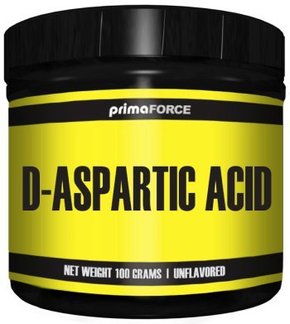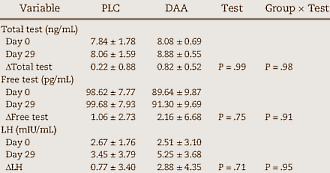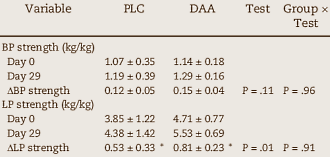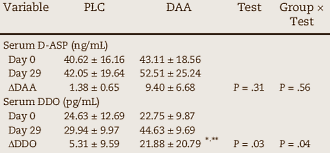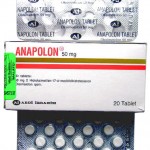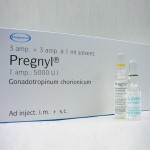Blog Entry #19
By Admin – Steroidal.com
In recent years D-Aspartic Acid has hit the shelves and gains popularity as a testosterone booster. After all, testosterone boosters are big business. First on the scene was Tribulus Terrestris, which claimed to increase endogenous testosterone levels, but in fact, did nothing of the sort. New herbs come out every year claiming to raise your total testosterone levels from anywhere up to 400-500% which puts you at the same total testosterone level as a cycle of Testosterone Enanthate would. Of course, these products have either no data to back their claims, or edited and doctored studies conducted by the manufacturers with vested interests in the products sale. This, unfortunately, occurs often.
The most recent of these product ingredients, which claimed to raise total testosterone in males is – D-Aspartic Acid. This originated from an Italian study, which showed in raised testosterone levels in elderly men given 3g of sodium-D-aspartate every day, which is an analogue of D-Aspartic Acid. D-Aspartic acid (D-AA) is an amino acid regulator of testosterone synthesis and also makes a stimulatory neurotransmitter (NMDA), this is how it raised testosterone, or claimed to originally. Experiences with pure D-Aspartic Acid were not as hopeful; those with calcium and sodium salts of the amino acid faired better. The body absorbs these forms of D-Aspartic Acid, it seems, better. However, more recent research is of the contrary.
According to a small human study published by sports scientists Darryn Willoughby and Brian Leutholtz in Nutrition Research, the effect of D-aspartic acid on testosterone levels is minimal. The same can be said about its effects on muscle building qualities and its ability to burn body fat, according to the study. Because the Italian study was done on elderly males with an already low testosterone level, Willoughby and Leutholtz were sceptical about its effects on healthy eugondal males.
They conducted a study on healthy male bodybuilders for 28 days. The experiment was with twenty bodybuilders with an average age of 22 years. Ten of the bodybuilder were given 3g every day of D-Aspartic Acid and the other ten were given placebo containing no active ingredient. The results can be found in the below tables and show very minimal effects on muscle growth, fat loss and changes in hormonal markers.
What did change was the level of the enzyme D-aspartate oxidase. This is the enzyme responsible for breaking down D-Aspartic Acid in the liver, kidneys and intestines.
The researchers then conclude, “”We conclude that 28 days of D-Aspartic Acid supplementation at a daily dose of 3g is ineffective in upregulating the activity of the hypothalamo-pituitary-gonadal axis and has no preferential effects in which to increase skeletal muscle mass and strength in resistance-trained men”, confirming its inefficient as a testosterone booster, or much else.
This recent study was done on the free form of D-Aspartic Acid. The study has little to say when it comes to the sodium and calcium bound analogues of D-Aspartic Acid, sodium-D-aspartate and calcium-D-aspartate, which the Italian study claimed to be effective.
Limitations of this study were that it was only done on twenty subjects and the Italian study was done on elderly males, with an already low testosterone levels, indicating the studies analogues of D-Aspartic Acid could be good for increase male fertility.
Source: Nutrition Research. Available online 15 August 2013.




